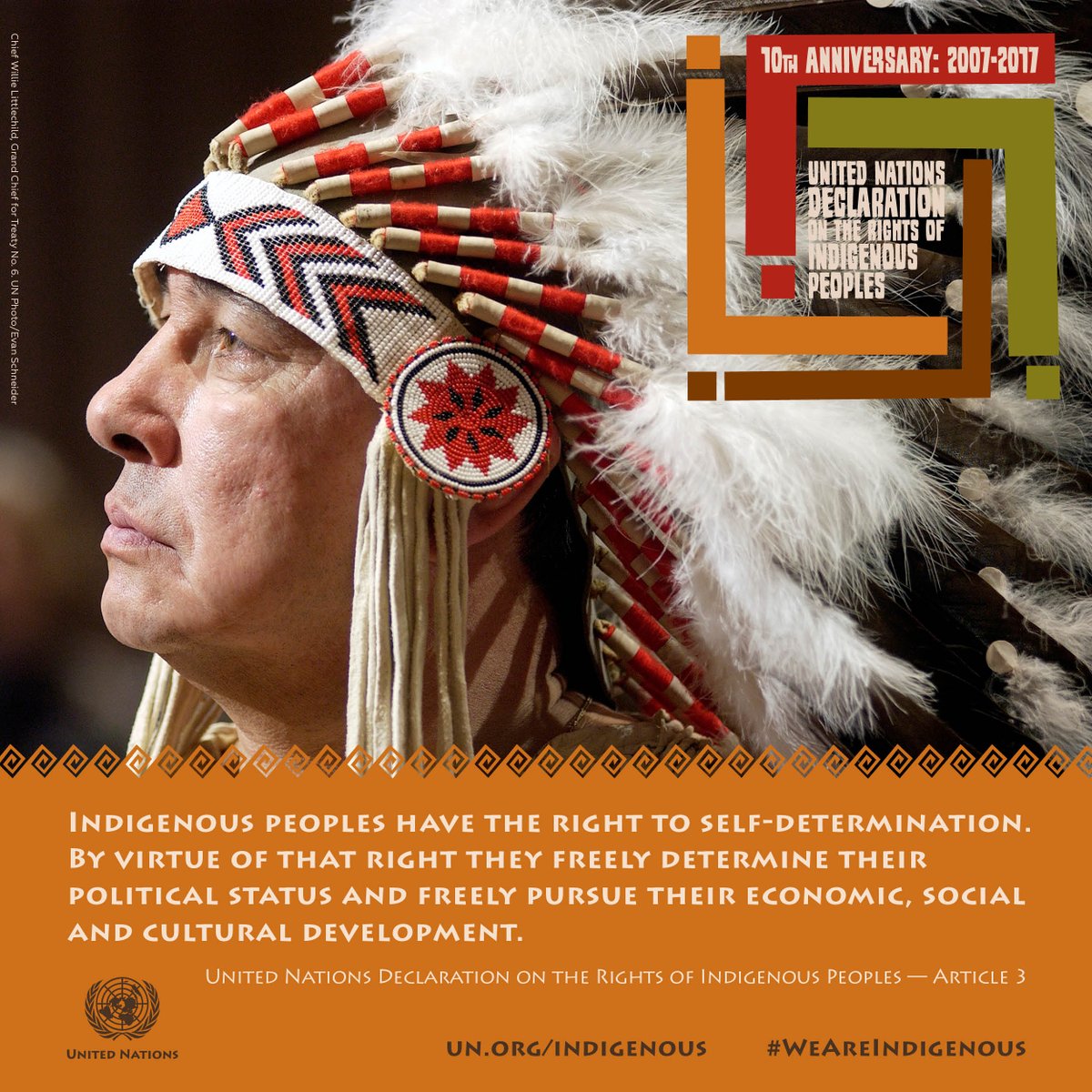10th Anniversary United Nations’ Rights of Indigenous People: Indigenous Rights in Nova Scotia
The Nova Scotia Human Rights Commission works to protect and promote the rights of Nova Scotia’s Indigenous people. The Nova Scotia Human Rights Act provides protections for people if there is discrimination against them based on ethnic, national or aboriginal origin.
September 13, 2017 marks the 10th anniversary of the United Nations’ Declaration on the Rights of Indigenous Peoples (UNDRIP). This comprehensive document addresses the human rights of Indigenous peoples globally, providing guiding principles for Nova Scotia, Canada and the world. It emphasizes the rights of Indigenous peoples to live in dignity, to maintain and strengthen their own institutions, cultures and traditions and to pursue their self-determined development, in keeping with their own needs and aspirations.
The anniversary of the UNDRIP is a reminder that we can’t turn a blind eye to what has been done to Nova Scotia’s Mi’kmaq people. The Mi’kmaq are the first peoples of Nova Scotia, with a more than 13,000 year presence here. Further, they remain the predominant Aboriginal group within the province. There are 33,845 people of Aboriginal identity in NS, of which 21,895 are First Nations people (Statistics Canada National Household Survey 2011). They are made up of thirteen bands governed by a Chief and Council.
With European settlement beginning in Nova Scotia in the 1600’s, these settlers robbed the Mi’kmaq of their land, culture, language and way of life. Many died of infectious diseases like smallpox inflicted by the settlers, and were killed through torture and deliberate genocide. Residential schools were intended to create cultural genocide– seven generations of Indigenous youth were forced to assimilate their lives and in the most abusive ways. Even though this might seem like history to some, the impact remains present today and inequities exist in many facets of society. One only has to look at the wrongful conviction of Donald Marshall Jr. for murder, the over representation of Indigenous people in the prison system, and the greater likelihood of Aboriginal women to be named among the “ missing and murdered”. In Canada, many Aboriginal communities face poverty and poor living standards. In terms of discrimination, a 2013 Nova Scotia Human Rights Commission study showed that Aboriginal people reported experiencing Consumer Racial Profiling by retailers and service providers more often than other groups. Specifically, the report shows that they have been targets of offensive language and have been treated as if they were physically threating or as potential thieves.
What can we do?
- Address any unconscious biases and stereotypes toward Indigenous people and stand up against racism and discrimination
- Help educate others about racism and discrimination faced by Nova Scotia’s indigenous groups, as well as the historic and current context. Make a commitment not to be discriminatory in employment, provisions of services etc. if you are in a position to do so.
- Learn about Truth and Reconciliation, a process that acknowledges that Canada’s educational system has wrongly informed Canadians about Canada’s indigenous peoples’ for generations. It is intended to restore the balance of the relationship between Aboriginal and non-Aboriginal Canadians.
If you are an indigenous person and you have questions about your rights under the Nova Scotia Human Rights Act, you may contact a human rights officer. The Commission also has an Indigenous education officer who works with communities to provide information on human rights under the Nova Scotia Human Rights Act and to educate around indigenous rights. If you are not an indigenous person and wish to learn more, we also encourage you check out the links below.
Additional Resources:
- Nova Scotia Human Rights Act
- The Truth and Reconciliation Commission
- FAQs - The Declaration of the Rights of Indigenous Peoples’
- Kairos Blanket Exercise
- Statistics Canada - Aboriginal Peoples’ Fact Sheet: Nova Scotia
- Globe and Mail: The Life and Death of Donald Marshall Junior
- Aboriginal Offenders: A Critical Situation
- National Inquiry Into Missing and Murdered Indigenous Women and Girls
